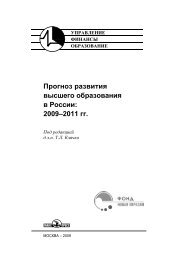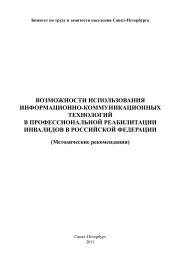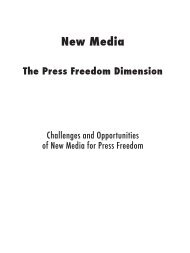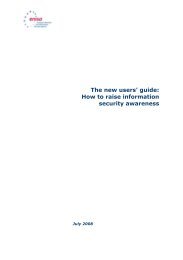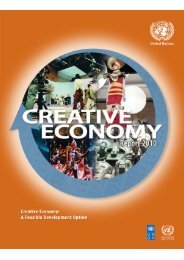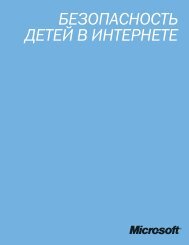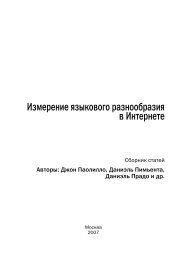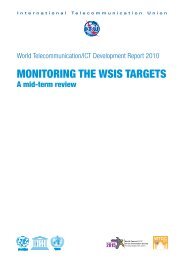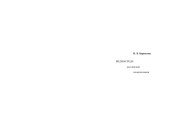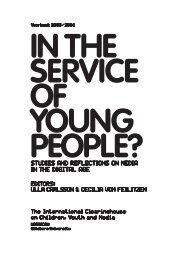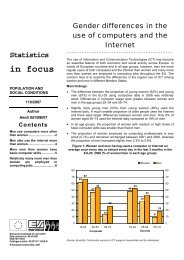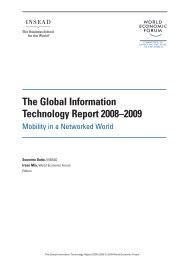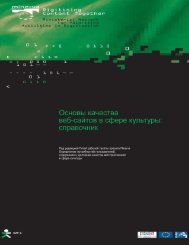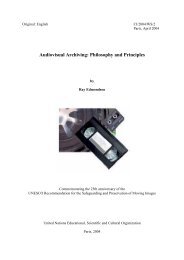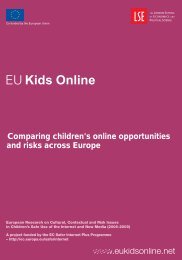Model curricula for journalism education for developing countries ...
Model curricula for journalism education for developing countries ...
Model curricula for journalism education for developing countries ...
You also want an ePaper? Increase the reach of your titles
YUMPU automatically turns print PDFs into web optimized ePapers that Google loves.
99<br />
coverage. Students will work at a practical level and will discuss players, processes,<br />
topics and policies that shape the political scenario. They will report on them in the<br />
field, wherever the story leads, producing a body of news and feature articles. They<br />
will also be encouraged to enhance critical analysis of political debates The course<br />
will review the most relevant aspects of political communication, citizen <strong>journalism</strong>,<br />
the role of the media in a democratic environment and public opinion as a target<br />
of political communication. It will also promote debates concerning the ownership<br />
of media, freedom of speech, censorship, regulations and restrictions on access to<br />
public in<strong>for</strong>mation.<br />
Mode: Combination of lectures, seminars, workshops and individual assignments.<br />
Pedagogical approach or method: The course will encompass a mixture of<br />
conceptual and practical contents and activities. There will be conventional lectures<br />
by the instructor and practising journalists, along with seminars and workshops. In<br />
every seminar there will be some practicum on the issue of the day. Each student<br />
will be required to write four special reports to be described and discussed in weeks<br />
8 (on a political institution or an interest group), 15 (on one of the main political,<br />
economic or social issues and policies discussed during the course), 21 (on a<br />
political party campaign or a candidate campaign) and 30 (on financing a political<br />
campaign).<br />
Numbers of hours per week: 4 hours (2 – lectures, 2 – seminar and workshop).<br />
Number of course weeks: Full year course: 30 weeks.<br />
Required and recommended texts<br />
(additional local bibliography is neccesary)<br />
For required texts, please see schedule of classes.<br />
• Jenkins, Henry, and Thorburn, David (eds.) (2003), Democracy and New Media,<br />
MIT Press.<br />
• Lavrakas, Paul, and Traugott, Michael (eds.) (2000), Election Polls, News Media and<br />
Democracy, Seven Bridges Press.<br />
• Raymond Kuhn, Erik Neveu (eds.) (2002), Political Journalism: New Challenges,<br />
New Practices, Routledge/ECPR Studies in European Political Science.<br />
• McNair, Brian (2000), Journalism and Democracy An evaluation of the political<br />
public sphere, Routledge Taylor & Francis Group.<br />
• Yantek, Thom, and Harper, Joe (2003), Media, Profit, and Politics: Competing<br />
Priorities in an Open Society, Kent State University Press.<br />
• Curran, James and Gurevitch, Michael (2000), Mass Media and Society, Ox<strong>for</strong>d<br />
University Press.



